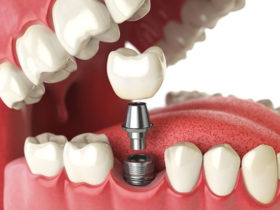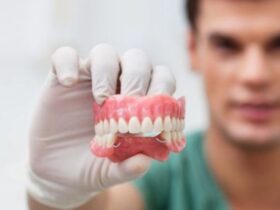Tooth sensitivity makes you feel sharp tooth pain when your teeth are exposed to hot or cold temperatures. Sometimes, acidic or sweet foods can trigger the pain. Tooth sensitivity can happen for many reasons, such as tooth decay, gum disease, and worn-down enamel. When you experience this condition, you may seek professional dental care in Plymouth. When not treated right away, it can result in more severe dental issues such as tooth decay and gum disease.
Common Causes of Teeth Sensitivity
Tooth sensitivity is a common issue for a lot of people. But serious or frequent tooth sensitivity can be frustrating. Tooth sensitivity can occur due to the following:
- Exposed tooth roots. The root of your tooth can become exposed if your gums recede because of dry mouth, over-brushing, or gum disease. When the root is exposed, it triggers sensitivity to hot or cold temperatures and sweet and acidic items.
- Worn enamel. The enamel of your teeth is the outermost layer that protects your dentin from damage. Eventually, the enamel can be worn down because of the acids produced by mouth bacteria. Worn-down enamel will expose the dentin’s underlying layer, causing sharp, shooting tooth pain.
- Dental cavities. Cavities happen when the enamel of your teeth is weakened due to bacterial acids, letting bacteria penetrate your tooth and cause decay. When not treated promptly, they can result in more serious issues such as tooth loss and root canal infections. Practicing good oral hygiene helps you avoid having dental cavities.
- A tooth crack or chip. A tooth chip or fracture can weaken the enamel of your tooth or expose your dentin, allowing bacteria to enter your tooth. When this happens, the bacteria will attack the nerves, causing pain. Also, a tooth crack or chip can expose the tooth’s root, making sensitivity worse.
Treating Teeth Sensitivity
Your dentist can give you advice on what you can do to reduce or eliminate teeth sensitivity. Recommendations may include:
- Changing your diet. Acidic foods and beverages can wear away your tooth enamel, exposing the deeper layer and causing sensitivity. But if you have to consume anything acidic and sugary, make sure to rinse your mouth with water afterward. Also, do not brush your teeth after eating acidic food items, as this can get rid of the weakened enamel, increasing sensitivity.
- Unclenching your teeth. Teeth grinding and clenching can wear down your tooth enamel and cause sensitivity. You can minimize sensitivity by seeing your dentist and getting fitted with a mouth guard you can wear at night. The mouth guard will serve as a shock absorber, removing friction between your teeth.













